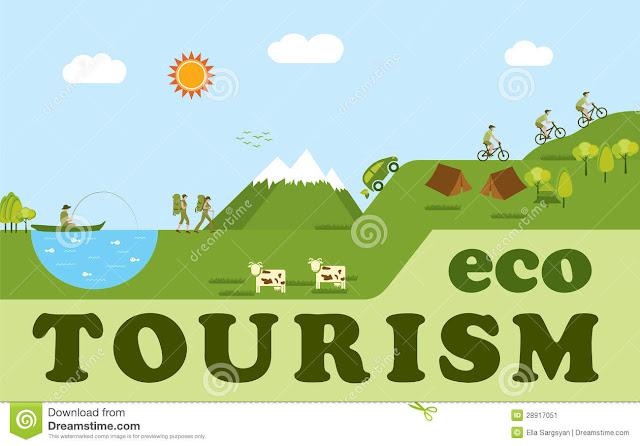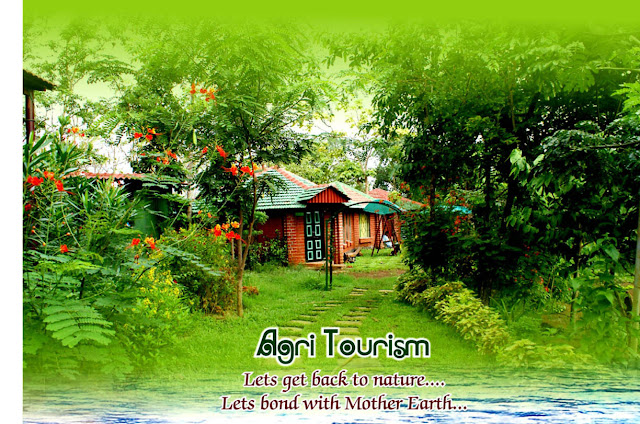Skip to main content
Ecological tourism
Ecotourism is about uniting conservation, communities, and sustainable travel. This means that those who implement, participate in and market ecotourism activities should adopt the following ecotourism principles:
Minimize physical, social, behavioral, and psychological impacts.
Build environmental and cultural awareness and respect.
Provide positive experiences for both visitors and hosts.
Provide direct financial benefits for conservation.
Generate financial benefits for both local people and private industry.
Deliver memorable interpretative experiences to visitors that help raise sensitivity to host countries' political, environmental, and social climates.
Design, construct and operate low-impact facilities.
Recognize the rights and spiritual beliefs of the Indigenous People in your community and work in partnership with them to create empowerment.
Ecotourism in India
India, the land of varied geography offers several tourist destinations that not just de-stress but also rejuvenate you. There are several ways to enjoy Mother Nature in most pristine way. The few places like the Himalayan Region, Kerala, the northeast India, Andaman & Nicobar Islands and the Lakshdweep islands are some of the places where you can enjoy the treasured wealth of the Mother Nature. Thenmala in Kerala is the first planned ecotourism destination in India created to cater to the Eco-tourists and nature lovers.
The Himalayas Ecotourism
The India topography boasts an abundant source of flora & fauna. India has numerous rare and endangered species in its surroundings. The declaration of several wildlife areas and national parks has encouraged the growth of the wildlife resource, which reduced due to the wildlife hunt by several kings in the past. Today, India has many wildlife sanctuaries and protection laws. Currently, there are about 80 national parks and 441 sanctuaries in India, which works for the protection and conservation of wildlife resource in India.
There are numerous Botanical and Zoological Gardens in India, which are working towards the enhancement of the Ecosystem. Poaching has stopped to large extent. There are severe punishments for poachers, hunters and illegal traders of animals and trees. Tree plantation are taking place in several places. There are several animal & plant rights organisation, who fight for the rights of the animals and plants. Numerous organisations and NGOs are coming forward to provide environmental education to the common people at the grass root level
Ecotourism is a form of tourism involving visiting fragile, pristine, and relatively undisturbed natural areas, intended as a low-impact and often small scale alternative to standard commercial mass tourism. It means responsible travel to natural areas conserving the environment and improving the well-being of the local people. Its purpose may be to educate the traveler, to provide funds for ecological conservation, to directly benefit the economic development and political empowerment of local communities, or to foster respect for different cultures and for human rights. Since the 1980s, ecotourism has been considered a critical endeavor by environmentalists, so that future generations may experience destinations relatively untouched by human intervention. Several university programs use this description as the working definition of ecotourism.
Generally, ecotourism deals with interaction with biotic components of the natural environments.Ecotourism focuses on socially responsible travel, personal growth, and environmental sustainability. Ecotourism typically involves travel to destinations where flora, fauna, and cultural heritage are the primary attractions. Ecotourism is intended to offer tourists an insight into the impact of human beings on the environment and to foster a greater appreciation of our natural habitats.
Responsible ecotourism programs include those that minimize the negative aspects of conventional tourism on the environment and enhance the cultural integrity of local people. Therefore, in addition to evaluating environmental and cultural factors, an integral part of ecotourism is the promotion of recycling, energy efficiency, water conservation, and creation of economic opportunities for local communities. For these reasons, ecotourism often appeals to advocates of environmental and social responsibility.




In the recent years it has been assessed that there is a growing trend towards travel to eco tourism destinations like National Parks and Wildlife Sanctuaries.
Considering this trend a series of meetings were organized by Ministry of Tourism with the stakeholders, State Governments and Ministry of Environment & Forests under the initiative "Tigers - Our National Beauties" and the stake holders had raised serious concern about growing dangers to wildlife in our National Parks and wildlife sanctuaries due to unplanned growth of infrastructure in these areas which is also affecting the corridors for movement animals in the parks.
During these meetings, it was decided that before making any policy intervention we must have independent assessment of the ground situation in our National Parks & Wildlife Sanctuaries. In view of this, on a pilot basis, the first assessment of Hotels, Lodges, Resorts, Camps & Guest Houses in and around Corbett National Park was taken up by Ministry of Tourism considering that Corbett Reserve has the highest density of tigers in the country and is under huge biotic pressure. The Ministry of Tourism had commissioned this survey through the Students in Institute of Hotel Management, Pusa, New Delhi. Similar surveys were extended to Kaziranga National Park, Kanha National Park, Bandavgarh National Park, Pench Tiger Reserve and Mudumalai Wild LIife Sanctury. The survey of the aforesaid parks has come out with first hand information with regard to impact of tourism activity in and around the national parks and also the blocking of animal corridors
Ecotourism is a form of tourism involving visiting fragile, pristine, and relatively undisturbed natural areas, intended as a low-impact and often small scale alternative to standard commercial mass tourism






Comments